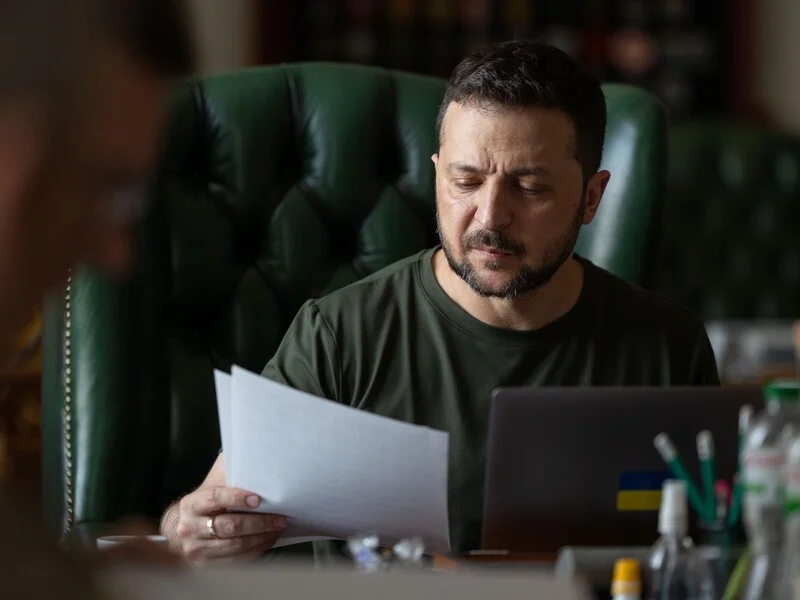In a letter submitted to Ursula von der Leyen, President of the European Commission, and Didier Reynders, Commissioner for Justice, four Romanian professional association of magistrates have urged them “to reconsider the position of the European Commission submitted to The Court of Justice of the European Union (CJUE) due to the fact that it is based on serious fundamental errors and justified on pseudo arguments that were part of a fakenews and disinformation campaign regarding the creation of the Section for the Investigating Crimes within Judiciary (SIIJ) in Romania“.
The four associations of magistrates – Romanian Association of Magistrates (AMR), Association of Judges for the Defense of Human Rights (AJADO), National Union of Romanian Judges (UNJR) and Romanian Association of Public Prosecutors (APR) – have detailed in their letter the errors contained in the document submitted by the European Commission to The Court of Justice of the European Union, which ranged from factual errors to statements that are baseless.
Thus, the position of the European Commission, for example, “refers to a state of fact that does not correspond to reality”, “is disregarding the provisions of the Constitution and the decisions of the Romanian Constitutional Court that restored the separation of powers in states, condemned the violation of the independence of justice and defended the fundamental rights and freedoms” and “wrongly invokes laws from the Romanian legislation”, the letter showed.
Also, the Commission’s position “uses as arguments statements that have proven to be fakenews and part of a disinformation campaign regarding in particular the SIIJ”, the letter also stated.
The Section for the Investigating Crimes within Judiciary (SIIJ) is an investigative prosecutorial unit established as part of the General Prosecutor’s Office adjacent to the Romanian High Court of Cassation and Justice to investigate only magistrates.
This unit was created in 2018 in order to safeguard the independence of the judges, especially after it was revealed that the anticorruption prosecutors, who worked secretly with Romanian Intelligence Services’ (SRI) officers, were opening criminal files against judges on large scale and conducting abusive investigations against them.
Since its creation this unit was heavily criticized with false arguments by some magistrates, politicians and media outlets who, for many years, have endorsed the abuses and severe violations of human rights done under the pretext of fighting corruption, or who endorsed and justified the illegal and undercover involvement of SRI in penal investigations and court trials.
The illegal and covert involvement of SRI in penal investigations was based on a secret protocol signed in 2009 between Laura Codruta Kovesi, as General Prosecutor of Romania at that time, and George Maior, as Director of the Romanian Intelligence Service (SRI), that was revealed in 2018. In 2019 the Romanian Constitutional Court ruled that the protocol was unconstitutional and generated a constitutional conflict between the authorities of the state.
This illegal involvement of SRI in the judicial processes, similar to the system in place under communism, was justified by some magistrates, politicians, journalists to help effectively fighting corruption. In fact, though, this system ended up undermining the independence of the judiciary and the professionalism of penal investigations, as well as generated severe abuses and human rights violations.
The false arguments about SIIJ were elevated all the way up to the European Commission, which embraced them and mentioned them even in the 2019 Cooperation and Verification Mechanism Report on Romania.
One such false argument is that it is abnormal to have a prosecutorial unit to investigate only magistrates, or that this unit is a threat to the independence of the judges because it is under political influence. All these arguments embraced by the European Commission are completely false.
As far as the first false argument, not only that the Romanian Constitution and laws allow prosecutorial units by person, but the Consultative Council of the European Judges (CCEJ), in Opinion n° 21 (2018) on preventing corruption among judges, stated that it is perfectly in accordance with the European principles to have in certain cases specialized structures to investigate judges and prosecutors.
“50. […] Depending on a given country’s history, traditions and administrative structure, as well as the actual extent of corruption inside the system, it might be necessary to establish specialised investigative bodies and specialised prosecutors to fight corruption among judges”, the CCEJ stated.
As far the political influence over SIIJ, different than any other prosecutorial units, this is the only unit where no politician is involved in the appointment of the chief and active prosecutors. The SIIJ prosecutors are appointed only by the Superior Council of Magistracy, without the involvement of any politician.
Also, compared to other prosecutorial units, the prosecutors who can activate in SIIJ need to have minimum 18 years of experience, at least the rank of court of appeal, to not have any disciplinary sanctions, and to pass an exam.
“Compared to all the other prosecutorial units, SIIJ is by far the one with the highest standards of professionalism and independence”, the four associations stated.
The position of the European Commission submitted to CJUE also ignored the severe abuses and violations of due process and human rights by the National Anticorruption Directorate in cases involving magistrates, with direct effect in pressuring them.
In October 2019 the Plenum of the Superior Council of Magistracy validated a report of the Judicial Inspection after it conducted a verification at DNA, which explained how DNA used criminal cases to pressure magistrates.
For example, the report states that between 2014-2018, DNA opened almost 3.000 cases against the magistrates. Out of these, 276 cases were opened “ex officio”, which means that, during these 4 years, every month there were opened almost 6 cases with magistrates.
“In some cases the DNA prosecutors opened ex officio investigation against the judges that, at the same time, were judging DNA cases”, the associations stated in their letter.
“The practices of DNA prosecutors who have investigated cases with judges in the ways mentioned [in the Judicial Inspection’s report] have represented forms of pressure on them, with direct consequences in the way the justice act was executed”, the Plenum of the Superior Council of Magistracy concluded.
Another aspect ignored by the European Commission is that SRI’s intelligence officers were illegally and secretly involved in criminal investigation against magistrates.
This is not only violating the Romanian Constitution and laws, but also the position of the Consultative Council of the European Judges which, in Opinion n° 21 (2018) on preventing corruption among judges, stated that: “27. […] In no circumstances should the fight against corruption of judges lead to the interference by secret services in the administration of justice”.
Despite these clear facts, the European Commission “ostensibly ignores the serious pressures put on judges by the way in which the cases with magistrates had been previously investigated by DNA, including the investigations that looked exclusively at the judgments given by the judges”, the four associations stated.
“In conclusion, the opinion expressed by the Commission in the sense that «the national provisions in question contravene the requirements of the law of the Union regarding the principle of effective judicial protection» is clearly based on unacceptable gross errors, which is why we request for them to be revisited by the Commission and to carry out a new analysis based on the facts and real data, not disinformation, fakenews and subjective appreciations”, the four associations concluded.
The complete letter to the European Commission can be found at the following address:
___































Comentează